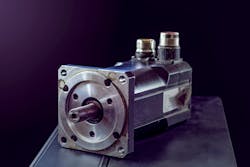Anything is Possible with Servo-Driven Devices
Manufacturers are investing significant time and money into making machines easier to design and program, catching them up to speed with flashier artificial intelligence and augmented reality systems. A key element in this process includes the implementation of servo-controlled devices.
In older designs, a repetitive-motion machine would have a control system containing a central drive shaft with cam-driven accessories. This system moved in a pattern dependent on the main cycle shaft’s position, causing the device to travel the same path every cycle.
Changing to servo-driven devices, however, can help achieve multiple motion profiles and further expand machine capabilities.
To learn more about servo-driven devices, read the full story from Control Design here.

